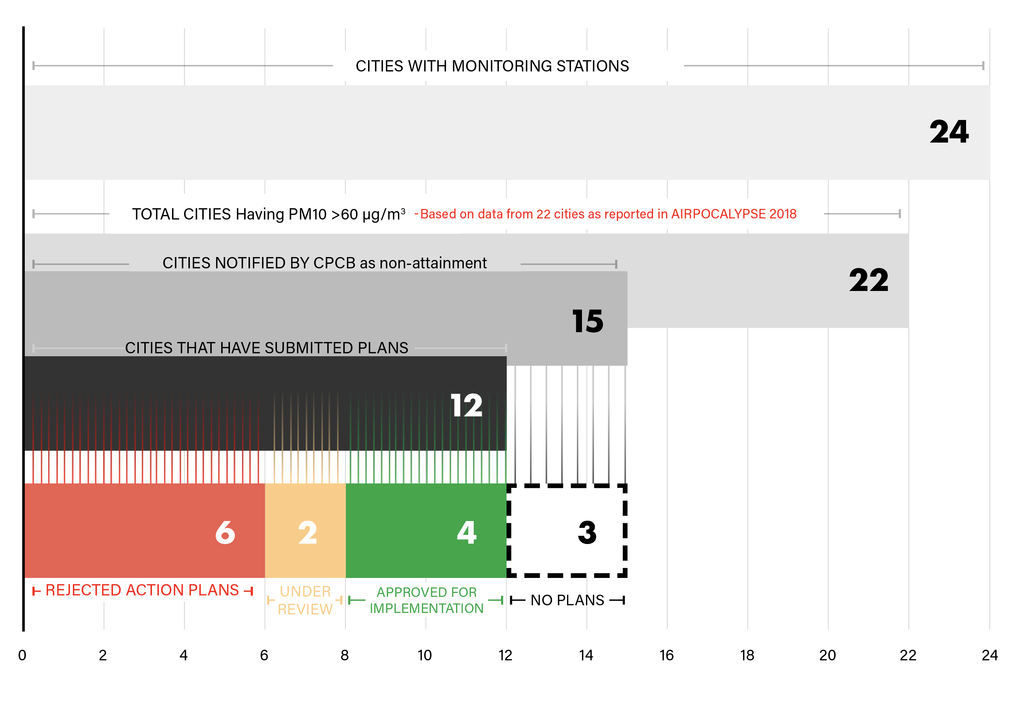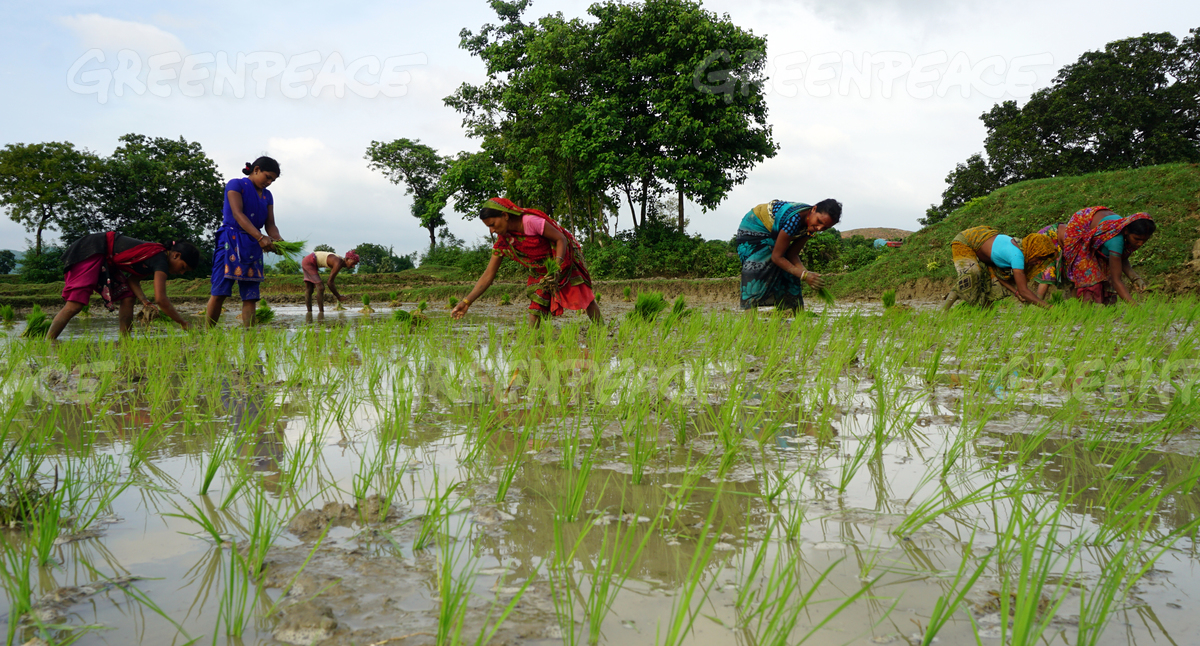Only 4 Out of 15 Uttar Pradesh non-attainment cities are prepared with action plan to tackle air pollution – Greenpeace RTI query reveals.
Lucknow 28th August 2018 | A Right to Information query has highlighted the immediate need for Uttar Pradesh to expedite its efforts to mitigate air pollution under the National Clean Air Programme (NCAP). In response to the RTI, the Central Pollution Control Board (CPCB) has stated that out of 15 non-attainment cities of Uttar Pradesh, only four cities have got the go ahead on the ground implementation of the clean air action plans. These cities include Agra, Lucknow, Varanasi and Ferozabad. The Central Pollution Control Board has asked the six cities- Allahabad, Anpura, Bareilly, Ghaziabad, Kanpur and Moradabad to revise the action plan. While, three cities — Jhansi, Noida, and Khurja — have not yet sent their action plans yet, the action plans of Rae Bareli and Gajraula are being reviewed.
WHO Findings & Airpocalypse II Report
In a report released in May 2018, World Health Organisation (WHO) highlighted that eight of ten most polluted cities were in India and four of them (Kanpur, Varanasi, Lucknow and Agra) were in Uttar Pradesh. Kanpur was named the world’s most polluted city in WHO’s list. Greenpeace India also in its Airpocalypse II report released in the beginning of 2018, mentioned that air pollution in almost 22 cities of Uttar Pradesh were not meeting the national ambient air quality standards.
Commenting on the air quality monitoring scenario Sunil Dahiya, Senior Campaigner, Greenpeace India says, “There are only 24 cities equipped with air quality monitoring devices in Uttar Pradesh. More than 50 districts have no air quality monitoring system. To get the correct picture of the levels of pollution in the state, air quality of the entire state needs to be monitored. What is even more concerning is that Noida which is also a part of National Capital Region (NCR) has not yet submitted its plan.”
Questioning Government’s vision, Dahiya further adds: “Its difficult to figure out whether our government is prioritizing public health or siding with polluting industries?
Sunil further says, “The Central Government is yet to come up with the final version of the National Clean Air Program (NCAP), with broad and fixed time frame. This delay is costing the country dearly, not just health-wise, but also financially.”
Air pollution is a public health emergency across India. The country needs the immediate enforcement of the much anticipated National Clean Air Programme, which will be addressing air pollution both at regional as well as national levels.
“City and regional action plans will play a crucial role in fighting the battle against air pollution. Therefore, formulating these action plans in a time-bound manner is the need of the hour. Soon after monsoons, pollution levels are likely to increase. And with the advent of winters soon, the whole of north India will be in the grip of hazardous air pollution. This problem can only be avoided if a concrete action plan is implemented before that,” concludes Dahiya.

Only 4 Out of 15 Uttar Pradesh Nonattainment cities prepared with Action Plan to tackle Air Pollution- Greenpeace RTI query reveals
For more information:
Sunil Dahiya, Senior Campaigner, Greenpeace India: [email protected]
Avinash Chanchal, Senior Communication Campaigner: [email protected], 8882153664




Discussion
To cultivate vegetables at home in garden without using chemical fertilizers. How can we prepare amrithpani So that we can do it in our villages iam from Tamilnadu.Tiruvarur helpus